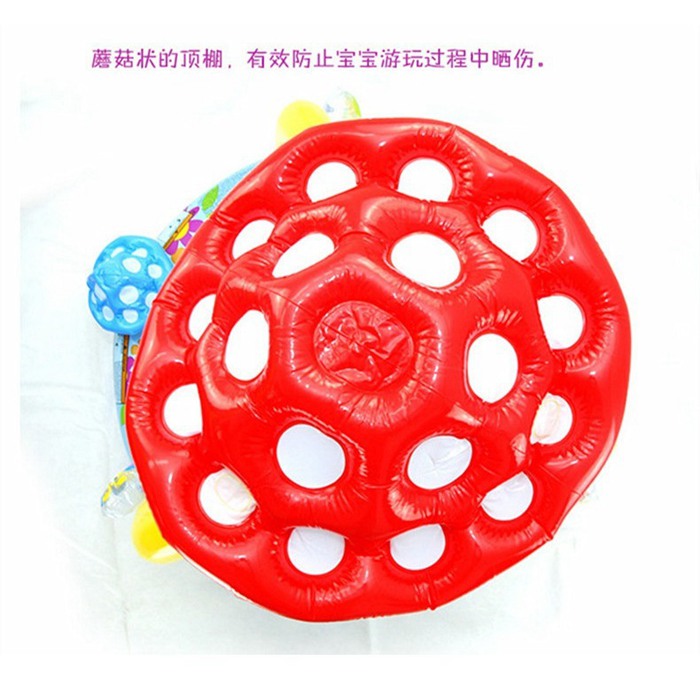Choosing the appropriate material for Toy Pools is crucial to ensure their durability, safety, and usability. PVC (Polyvinyl Chloride) and Thermoplastic Polyurethane(TPU) are some of the materials from which toy pools are made having unique advantages as well as disadvantages. This article provides an insight into these materials in a manner that clients can learn about them and identify suitable applications.
Polyvinyl Chloride (PVC):PVC is one of the most commonly used materials in the manufacture of inflatable, foldable toy pools. It is a versatile plastic known for its stability and low cost.
Pros:
Durability: PVC is highly resistant to wear, so it will remain strong even if it’s used regularly. It cannot get punctured or scratched easily; hence usable outside.
Affordability: PVC offers an inexpensive way for families as well businesses who may want to purchase toy pool on a large scale.
Flexibility: The material can have expansion or contraction capabilities thus allowing easy inflation or deflation. Therefore, PVC made pools are portable and easy to keep when not in use.
Waterproof: The natural waterproof ability of this material makes it perfect for waterside applications, keeping the pool free from leakage.

Cons:
Environmental Impact: Both production and disposal processes involved in making PVC can be harmful to the environment. It does not rot away naturally but releases poisonous gases when burnt.
Chemical Sensitivity: If untreated properly, certain chemicals together with UV radiation may cause eventual decay of PVC over time.
Stiffness: In cold temperatures, however, they become rigid making them less pliable hence less dependable for swimming pools.
Thermoplastic Polyurethane (TPU):This is a more recent material used in toy pool manufacturing, providing an ideal combination of flexibility, durability and environmental friendliness.
Pros:
Eco-Friendly: TPU is environmentally friendly when compared with PVC. It can be recycled and does not emit as many harmful substances during its manufacture.
Flexibility and Softness: These elements remain even at low temperatures, which makes the toy pool comfortable to use.
Abrasion Resistance: The material has a high ability to prevent itself from any scratch, puncture or hard hit; hence lasting long in the same condition of the pool.
Chemical Resistance: It cannot be affected by oils, grease or other chemicals; thus maintaining the integrity of the material over time.
Transparency: This plastic can also have transparency to it making it aesthetically pleasing for creative designs.
Cons:
Cost: PVC is generally cheaper than TPU thus being considered by potential buyers who are on budget.
Complexity in Manufacturing: Production of TPU can result into extended lead time and higher production costs due to its complicated processing methods.
Comparison and Recommendations:
1. Durability and resistance
Both PVC and TPU are highly durable as well as resistant against wear and tear. However, TPU’s better abrasion resistant along with chemical resistance makes it suitable for conditions where a pool may become roughed up through harsh environmental conditions or heavy usage.
2. Environmental Considerations:
For customers who highly prioritize the environment, TPU becomes more satisfactory due to being able to be recycled and it has less environmental impact during production and disposal.
3. Cost and Budget:
PVC is a cheaper option among the two which makes it good for families or businesses that want to have many pools without spending too much money. However, TPU on the other hand is costlier but comes with a range of enhanced features that goes with its high price for individuals looking for premium quality.
4. Flexibility and Comfort:
TPU’s flexibility and softness at different temperatures make it more comfortable for kids, offering them a safer experience, hence making it an ideal choice for areas that have changing climates.